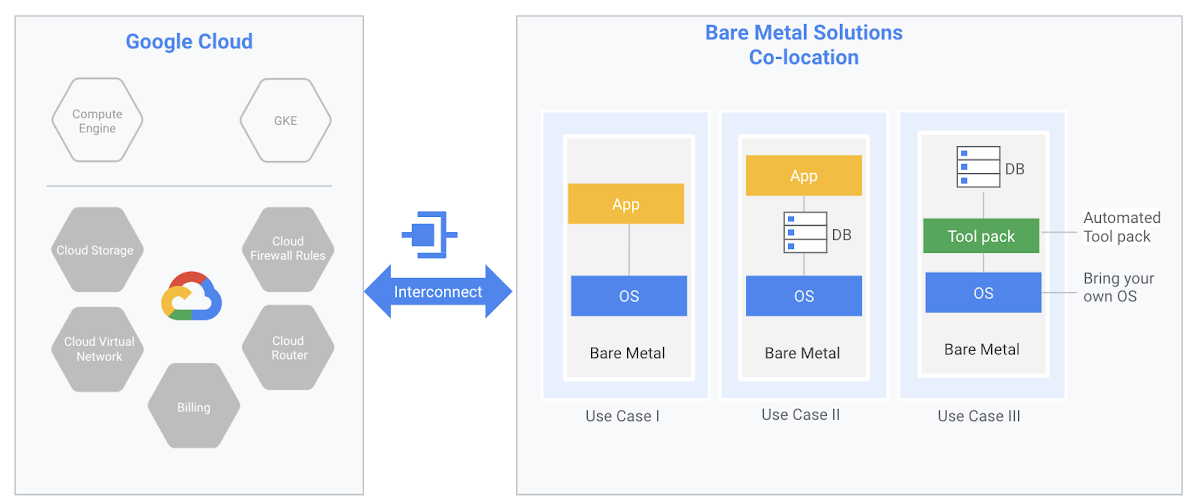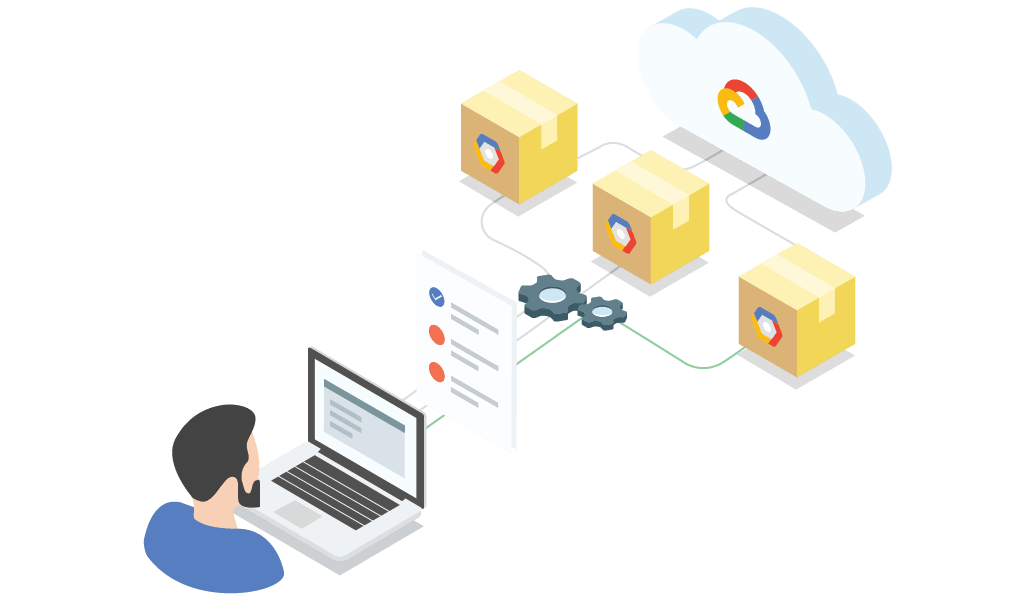Bare Metal Solution is, as the name implies, a fully integrated and fully managed solution for setting up this kind of infrastructure. It involves a completely managed hardware infrastructure that includes servers and the rest of the data center facilities like power and cooling; support contracts with Google Cloud and billing are handled through Google’s systems, as well as an SLA. The software that’s deployed on those machines is managed by the customer — not Google.
The overall idea, though, is clearly to make it easier for enterprises with specialized workloads that can’t easily be migrated to the cloud to still benefit from the cloud-based services that need access to the data from these systems. Machine learning is an obvious example, but Google also notes that this provides these companies with a bridge to slowly modernize their tech infrastructure in general (where “modernize” tends to mean “move to the cloud”).
“These specialized workloads often require certified hardware and complicated licensing and support agreements,” Google writes. “This solution provides a path to modernize your application infrastructure landscape, while maintaining your existing investments and architecture. With Bare Metal Solution, you can bring your specialized workloads to Google Cloud, allowing you access and integration with GCP services with minimal latency.”
Because this service is co-located with Google Cloud, there are no separate ingress and egress charges for data that moves between Bare Metal Solution and Google Cloud in the same region.
The servers for this solution, which are certified to run a wide range of applications (including Oracle Database) range from dual-socket 16-core systems with 384 GB of RAM to quad-socket servers with 112 cores and 3072 GB of RAM. Pricing is on a monthly basis, with a preferred term length of 36 months.
Obviously, this isn’t the kind of solution that you self-provision, so the only way to get started — and get pricing information — is to talk to Google’s sales team. But this is clearly the kind of service that we should expect from Google Cloud, which is heavily focused on providing as many enterprise-ready services as possible.
 info@businessghana.com
info@businessghana.com




















